15% of Americans think that President Trump sees Russia as an ally
The President’s expression of his worldview last week at the United Nations was met with skepticism from world leaders; it may also be adding to his troubles at home. In the latest Economist/YouGov Poll, Americans favor international cooperation over a go-it-alone strategy, and worry that the President does not have the respect of international leaders. As for the United Nations, even those who doubt it is doing a good job trying to solve the problems it faces say they don’t want the United States to give up on it and leave the international body.
Americans don’t think world leaders have an especially positive view of President Trump, and they see lack of respect as mutual. A majority believes the President has little or no respect for international leaders; even more think those leaders don’t regard the President especially positively.
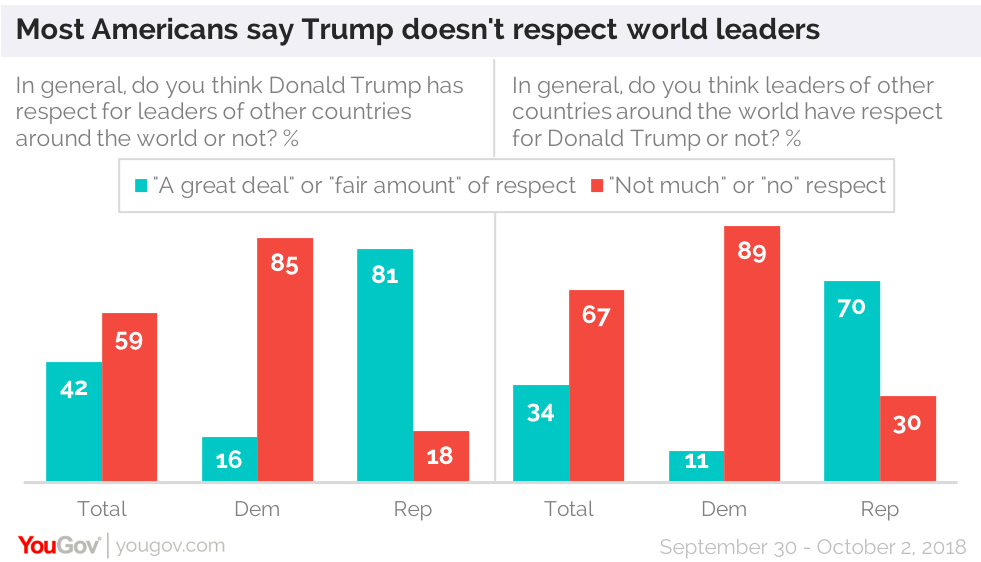
The public perception of a mutual lack of respect existed even before last week. In Economist/YouGov Polls conducted earlier this year, there was the same belief that there is little good will between the President and other leaders.
Then as now, only Republicans believe international leaders have even a “fair amount” of respect for the American President. Seven in ten say President Trump respects other world leaders.
Donald Trump gets relatively poor marks on his overall handling of foreign policy: 37% approve, and 46% disapprove. His overall approval rating this week dropped to 37%. 52% disapprove. While he is buoyed by a strong economy at home, the controversy over the nomination of Brett Kavanaugh to the Supreme Court as well as poor perceptions of the President’s off-the-cuff remarks have hurt him. By three to one, Americans think President Trump doesn’t carefully consider what he says before speaking, and half of Republicans agree.
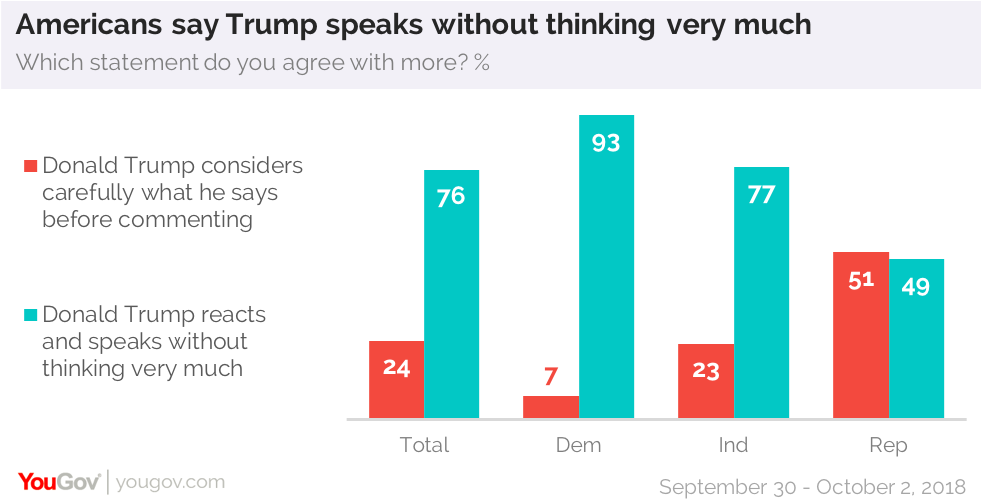
About half the public thinks the President always or often speaks inaccurately. Half of Republicans think he does this at least some of the time.
Americans also take issue with what they see as a President who thinks very differently than they do when it comes to whether a country is a friend or enemy. To them, the President is more likely to regard Mexico as an enemy than to say that about Russia, and as likely to call North Korea friendly as to view Mexico as a friend. These perceptions are very different from their own: most see Mexico as a friend, and view North Korea and Russia as unfriendly or enemies of the United States.
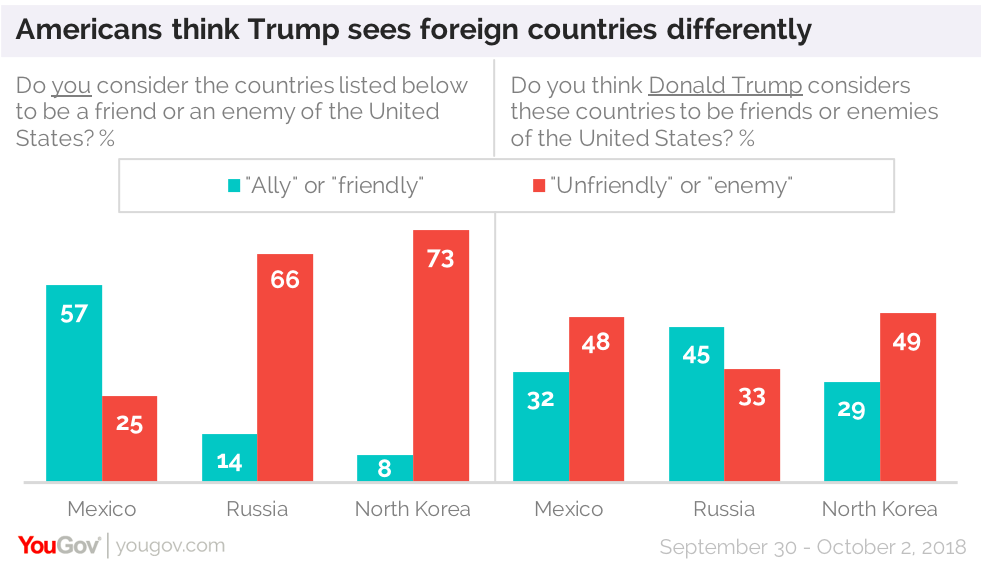
International cooperation, and even compromise, is a good thing according to majorities in both parties. Just 15% overall say the US should work alone to try and solve international problems. Most (62%) support collective solutions. While Republicans are more willing to go it alone (26% of Republicans think that), half prefer compromise.
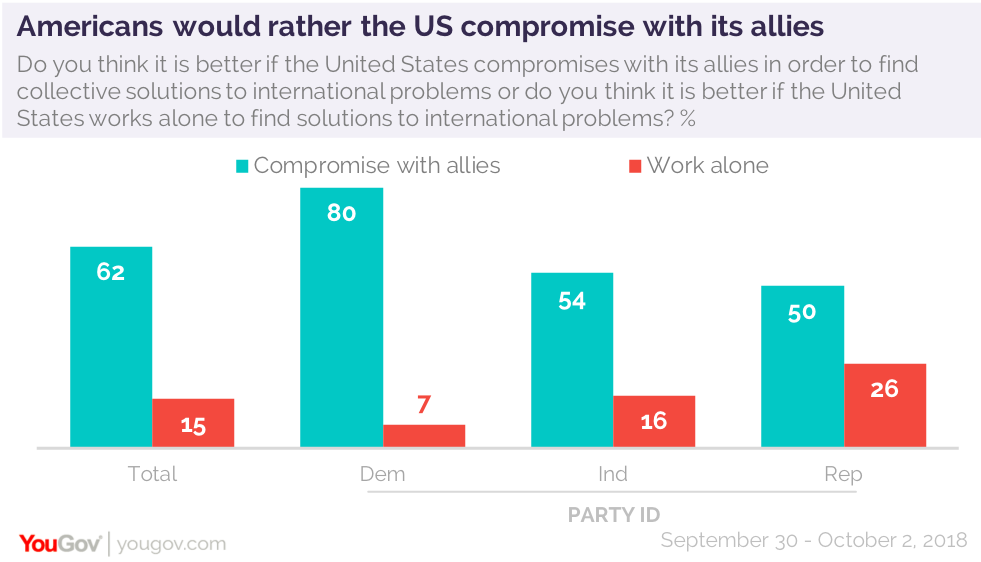
When it comes to acting unilaterally in response to international crises, there is a little more support, although Americans are nearly twice as likely to want to stay out of a crisis situation if there is no support from allies. However, on this Republicans are narrowly in favor of taking unilateral action. That’s especially the case with GOP men: by 47% to 33%, they think the US should act alone, even if there is no support from allies. GOP women are evenly divided.
The United Nations may be the epitome of aspirational international cooperation, but it’s not necessarily seen as doing a good job: in fact, by 38% to 28%, the public thinks it is doing a “poor” job (with Republicans especially negative). Good feelings about the job the UN was doing started to drop in the mid-1990’s, but Americans retain a favorable view of the UN. That’s not true of Republicans, however.
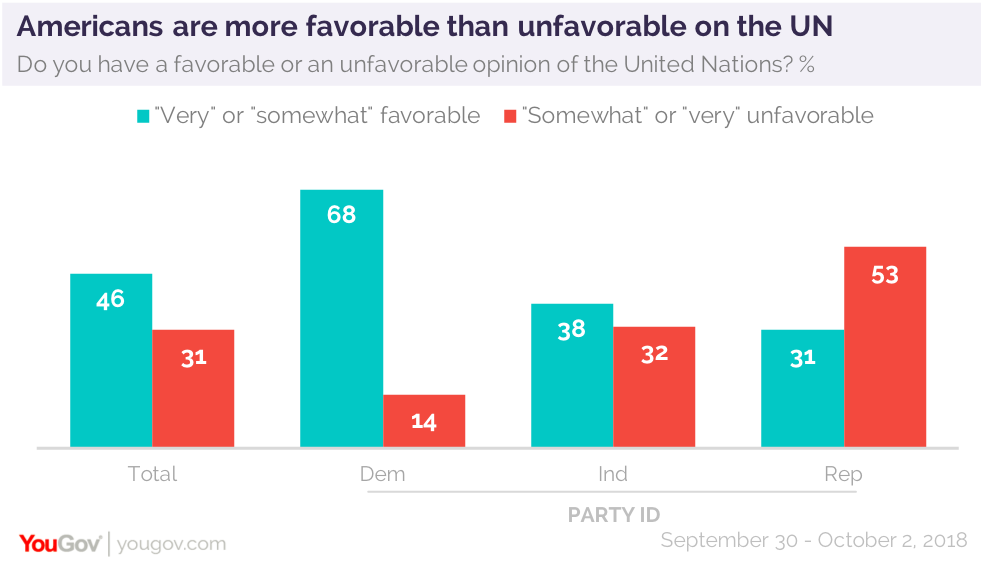
Still, by more than three to one, the public doesn’t want the US to give up its membership in the United Nations. Even those who think the UN is doing a poor job don’t want the US to leave it. Republicans and Democrats both would stay, though one in three Republicans would leave the organization (41% would stay). Plurality support for leaving comes only from the 16% of the public who view the UN very unfavorably. By more than two to one, that group would have the US quit the UN.
See full toplines and tables results
Image: Getty







